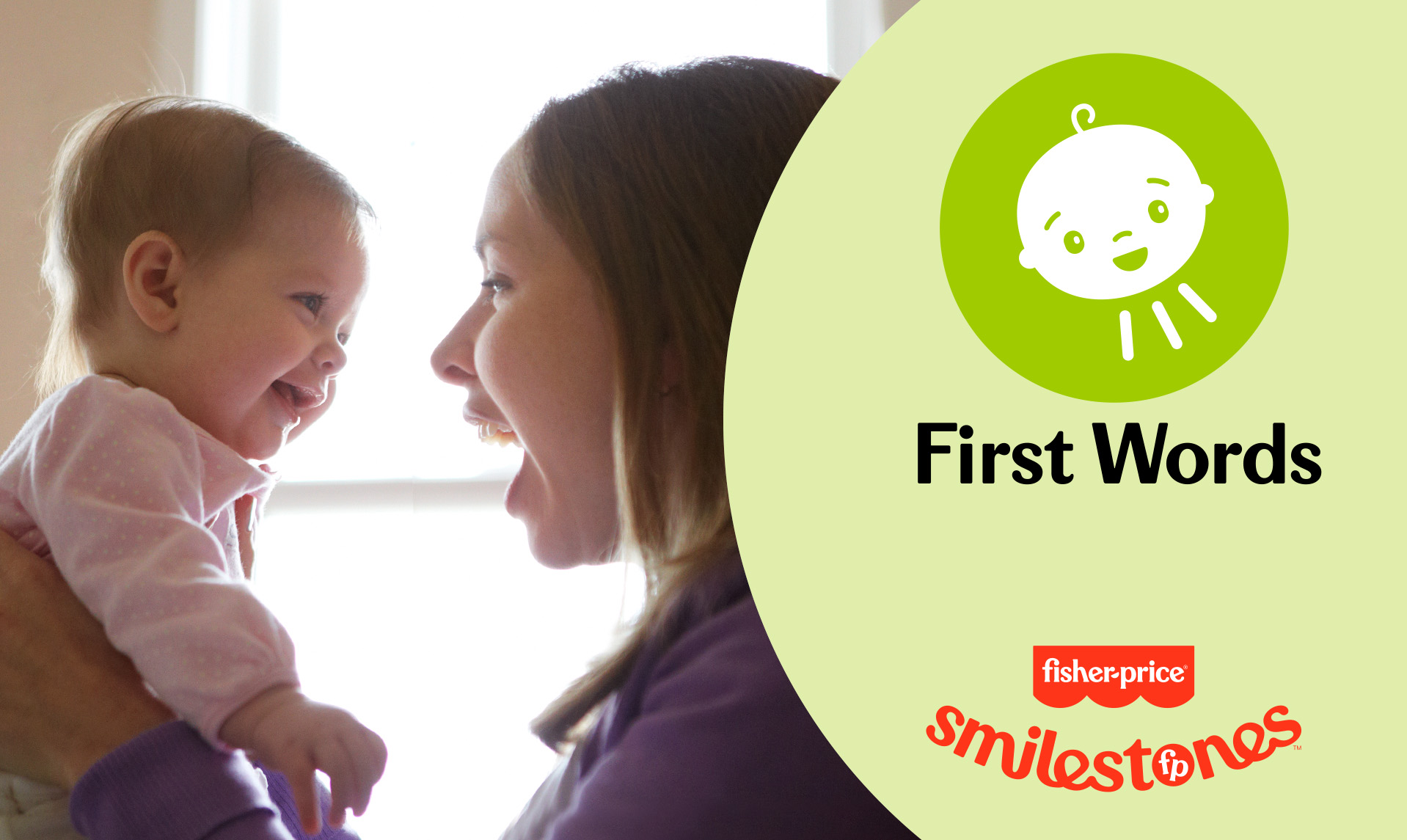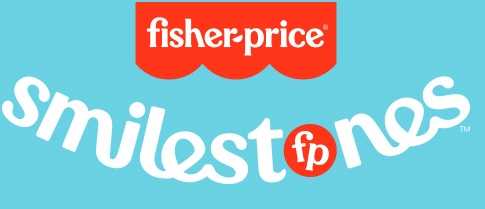When Do Babies Start Talking? First Words Timeline & Tips
June 6, 2023

It’s one of the top questions I get when meeting with caregivers in the Play Lab. And it was one of my biggest concerns as a new mother. “When will my baby start talking?”

When I became a mom, I anxiously awaited the day my child would say their first “real” words. Well, let’s just say they decided to take their sweet time (which I now realize is totally their style). This experience gave me a new perspective that’s become central to my work with families: Every child takes a unique path to reach their developmental milestones.
So, what age do kids start talking? The short answer: when they’re ready. Their communication skills will begin with smiles, giggles, claps and babbles before any words make it out. But while you wait for your tot to say full words, sentences and more, use these tips to help promote their language development right now.

How to get tots talking: conversation starters
I’ve used these tactics with young talkers in the Play Lab and with my own kiddos. Try them out!

1. Start story time early.
They might not understand everything right away, but reading introduces your baby to the flow of language. Point to and identify the pictures in the book; If there are animals, make each animal’s noise! The illustration and exciting sounds will keep your kid engaged and having fun.

2. Sing, rhyme & even dance.
Music is a great way to introduce your baby to words. Babies love simple rhymes and sing-along songs while repetition reinforces key words or phrases. Music also introduces them to fun physical movement—in my house, it’s led to many family dance parties!

3. Play with toys that bring their world down to size.
Toys that resemble familiar objects and places—like animal & people figures and playsets—help children identify real-world concepts up close and encourage pretend play.

4. Narrate & label anything, everywhere.
Talk and identify items through your everyday tasks: “Time to get into Mommy’s car.” “Time to get dressed, let’s get your blue pants on.” If they can touch it, see it and hear it (especially repeatedly), they are making that connection between words, concepts and objects.

5. Praise your little talker.
Positive reinforcement is key. Let your little one know they are on the right track by keeping the praise and encouragement coming when they identify objects and use words correctly.

6. Keep some banter going.
Show them how to carry a conversation by asking them questions, waiting for them to “answer” and responding to their babbles or one-word statements. Continue chatting about whatever they seem interested in (e.g., if they point at someone, say, “There’s a person, wave hello!”).

7. Show them how to talk the talk.
Have your little one look at you when you’re talking, and emphasize the movements of your mouth while pronouncing words. This allows your child to begin physically mimicking speech based on sight as well as sound.
Why isn’t my baby talking yet?
So your mini-me is taking their sweet time getting out those first words. I know, it can seem concerning, but remember that each child is unique and will develop their communication skills on a timeline that’s right for them. Even if they’re not speaking, they’re still listening and soaking up speech patterns from what they hear spoken around them.
They’re also likely learning nonverbal forms of communication like staring at, reaching for, and pointing at desired objects. And, they’ll start to understand you before they’re able to answer you with their words.


Language development timeline: how & when babies start talking
Talking may seem super easy to us grownups; we just open our mouths and our thoughts flow out (for better or worse). But, talking is actually pretty hard to do. First, babies have to learn the unique collection of sounds that create a word. Then, they need to make the connection between a word’s sounds and its meaning. Then their vocal cords, mouths and tongues must coordinate to make the correct sounds required to speak the words they want to say.
So, it will take your baby some time to figure out how to talk. Until they utter that very first word, they’ll develop many other important communication skills within their first year of life.
Baby’s communication & language development: 0-12 months

0-3 months
- Listens and responds by quieting, smiling or cooing when name is said
- Vocalizes pleasure through laughs, coos and squeals
- Vocalizes displeasure with grunts and cries
- May start to babble as they figure out how sounds work

3-6 months
- Lifts arms to indicate a desire to be held
- Turns toward the direction of sound when own name is heard
- Babbles consonant chains, such as “baba-baba”
- May start to mimic the rhythm and intonation of what’s spoken around them

6-9 months
- Points at interesting/relevant objects or people
- May connect word sounds to meanings (e.g., saying “ba” to refer to their bottle)

9-12 months
- Expresses "Mama" or "Dada" when they enter the room
- Imitates and waves back at adults
- Initiates game of peek-a-boo by hiding face behind blanket
- Responds to simple questions with "yes" or "no"


How many words should 18-month-olds, 2-year-olds and toddlers know?
Once your child starts learning a few words, the talking train can really pick up steam. They’ll go from babbling to pointing at and naming things. Between 18 and 24 months they may encounter a “word spurt,” increasing their vocabulary dramatically. By age two, kids can typically string two words together (e.g., “mama car”).



Parent check-in
How’s the conversation going?
You know, the one between you and your little one. If they’re not chatting away yet, just wait. Once they get the hang of this talking business, they will not want to stop!
I remember a time when my son was struggling to find his words. At times, he was only able to communicate with me using gestures and a little bit of babbling. By age two, he was still struggling to communicate with me. I was concerned and began to reach out to friends and co-workers for support and direction for my next steps (It truly takes a village!).
Fast forward, and he is now almost five years old and talking ALL OF THE TIME! Hearing him ask a million questions throughout the day is so refreshing and very welcomed. All kids take different paths to hit their developmental milestones, so go ahead and celebrate each new sound or word your child learns. Every step forward counts.
Gentle reminder: If you ever have concerns about your child’s development, trust your gut and reach out to your pediatrician.”

Bringing a smile to milestones.
Say hello to happier parenting. We’re here to help you celebrate the little victories, let go of expectations, and pick up more positivity. Because after more than 90 years of helping families, we’ve learned that development happens naturally when fun leads the way.
Learn More





































